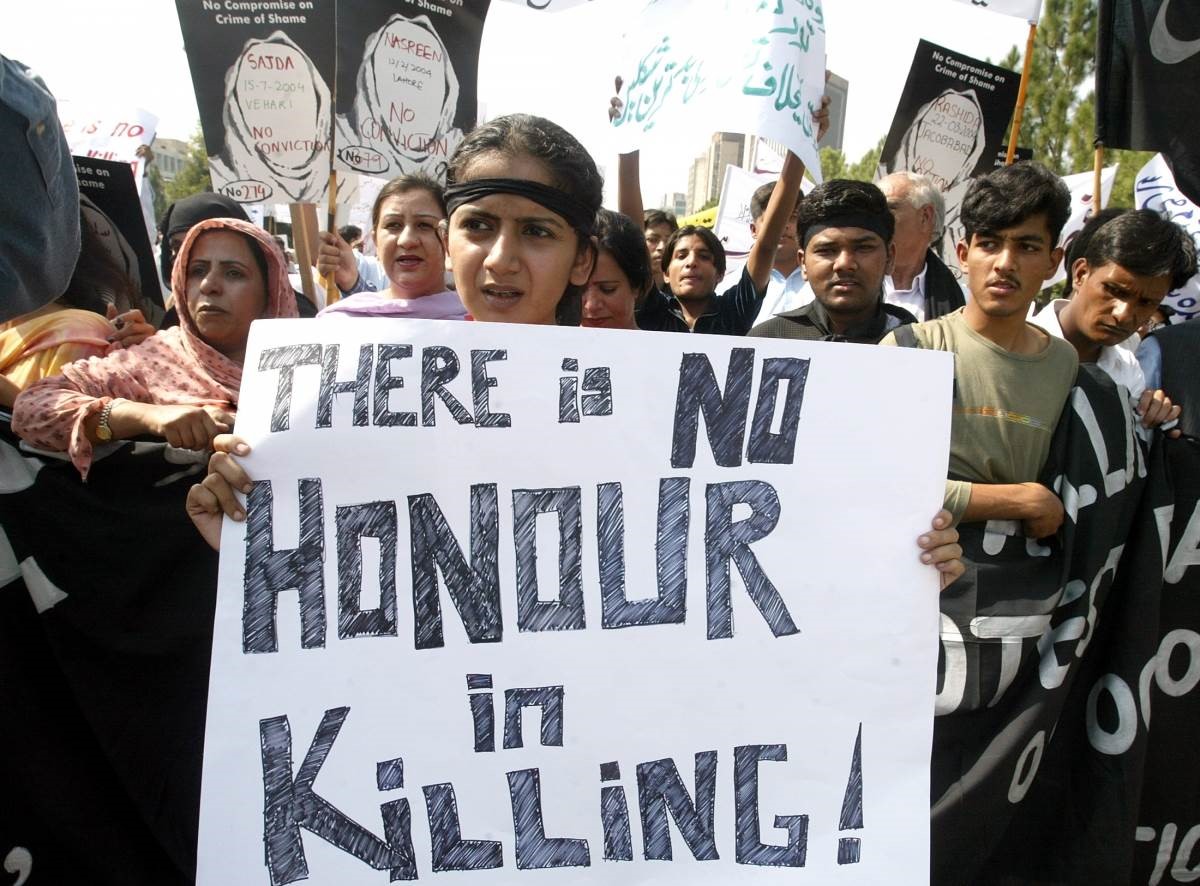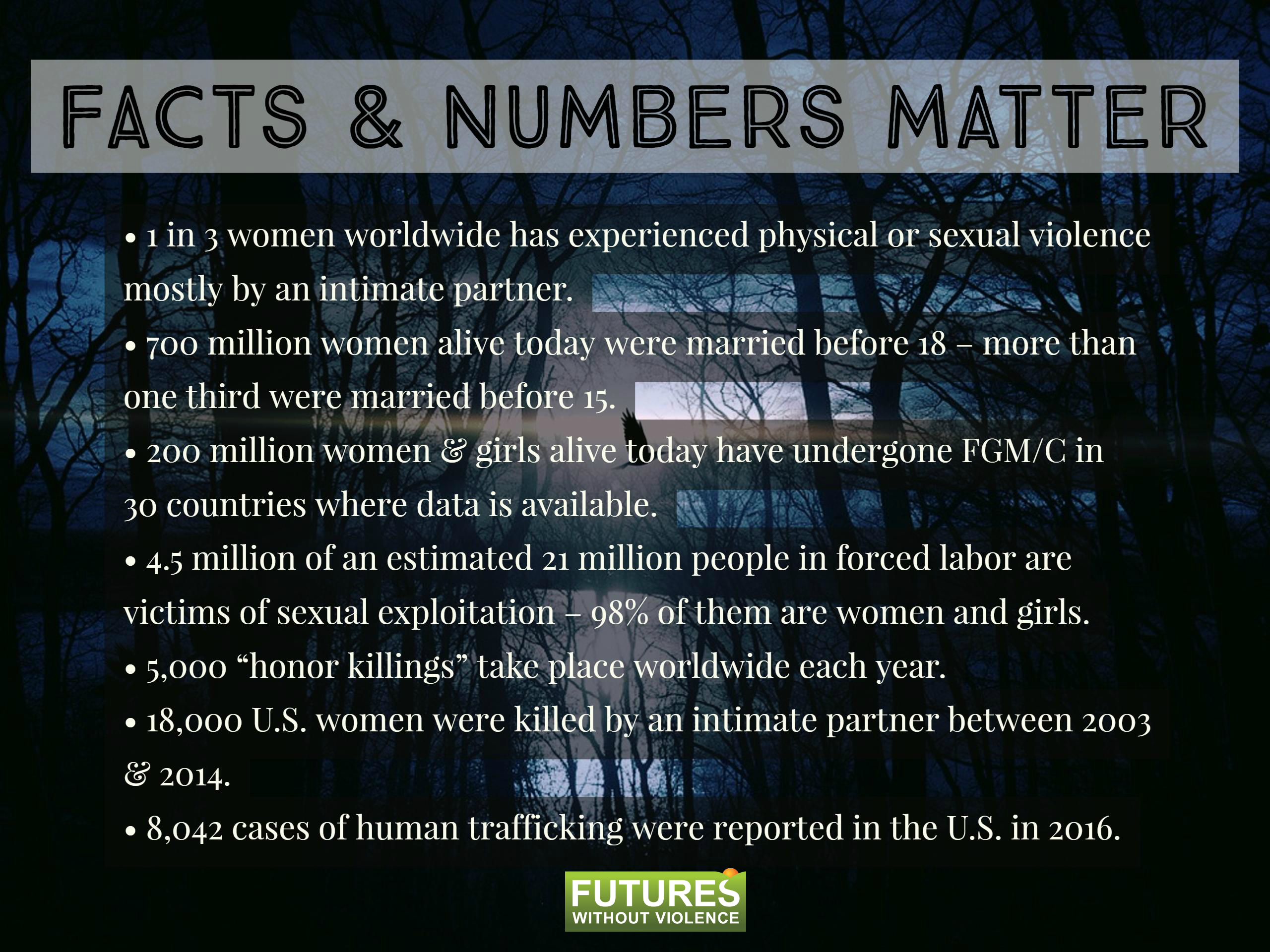Violence Against Women and “Honor Killings” Are Used as Justification in Executive Order

President Trump’s most recent executive order on immigration bans immigration from six Muslim-majority countries and reinstates a temporary hold on entry of all refugees for 120 days.
The executive order makes violence against women the focus of data collection and links it as a justification for the travel ban and temporary halting of the refugee settlement program. Specifically, the order calls for the Secretary of Homeland Security to collect information regarding the number and types of acts of gender-based violence against women, including so-called “honor killings,” in the United States by foreign nationals.
If there is genuine interest in the well-being of women and children and reducing their vulnerability to violence, this executive order is simply not how gender-based violence can be curbed. In fact, there are three glaring ironies with this policy:
Temporary halting of our refugee resettlement program will further endanger women and children and increases their vulnerabilities.
Women and girls in refugee camps are at a heightened risk of sexual and physical violence, exploitation, trafficking and early or forced marriage. The State Department reports that in fiscal year 2016, over 72 percent of refugees resettled in the U.S. were women and children. Forced to continue to stay in refugee settings, these women and children also lack access to consistent and reliable education, employment, and healthcare. With the doors of hope closing on these women and children, this vulnerable population is pushed into desperate, crowded, and inhumane conditions — they are increasingly susceptible to the tricks and traps set up by human traffickers and other criminal organizations.
People from one of the six identified countries are not any more likely to perpetrate acts of violence against women than people from other countries.
While it is estimated that 35% of women worldwide have experienced either physical and/or sexual intimate partner violence or sexual violence by a non-partner at some point in their lives, it is important to note the perpetrators do NOT belong to one particular race, religion, or economic background. Violence against women is not confined to a specific culture, region or country, or to particular groups of women within a society. Even in societies that do not overtly support or condone violence against women the statistics are alarming. Violence Policy Center’s September 2015 report shows that 94% of female homicide victims in the United States were murdered by either a known male relative or acquaintance. Globally, as many as 38% of all murders of women are committed by intimate partners according to the 2013 World Health Organization’s report on prevalence of violence against women.
A focus on “honor killings” in the order is more a tool to fan the flames of Islamophobia than to express outrage and alarm at the varied forms of violence against women, and it has other unintended consequences.
Identifying this act of violence as a “Muslim” problem or inferring as such distances the problem from other acts of violence against women and has an impact of sensationalizing one and diminishing the seriousness of one, or normalizing the other. There are multitudes of crimes that would fall under the category of violence against women—such as domestic violence, rape, human trafficking, and female genital mutilation/cutting—which far outnumber the cases of “honor killings” in the U.S.
- The most frequently quoted figure published by the United Nations in 2000 is an estimate of 5,000 honor killings take place worldwide each year. The Department of Justice estimated in its 2014 report that based on U.S. demographics, 23 to 27 honor killings occur in the country each year.
- Polaris reports that in 2016, there were 8,042 cases of human trafficking in the U.S., a 35% jump over 2015.
- The Violence Policy Center, Bureau of Justice Statistics, and National Institute of Justice found that more than 18,000 U.S. women were killed in this country by intimate partners between 2003 and 2014.
These crimes and their root causes also reflect a patriarchal society, one based on dynamics of power and control. While rates of rape, sexual harassment, and intimate partner violence are very high in our “western” culture, by labeling immigrant communities’ acts of violence differently, a disproportionate amount of attention is drawn on those communities and the more universal truth about violence against women is ignored.
So what would be the rationale for singling out such crimes and their perpetrators other than to play on the fears of a community and reinforce stereotypes, while at the same time diminishing the significance of other crimes?





